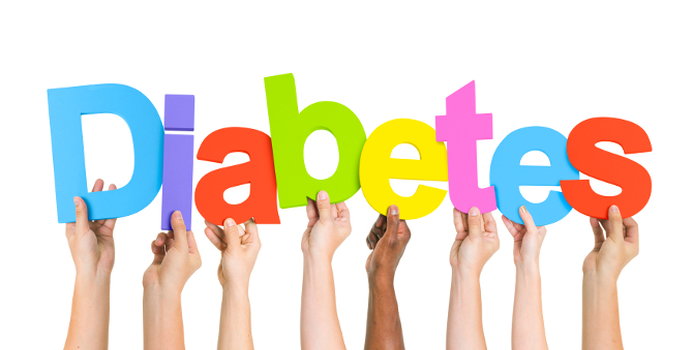There are two words many Americans have heard when discussing their health with a medical care provider, these two words are obesity and diabetes. To understand how these words are linked together it is important to know what each means. First, obese is the term used to define a person who has a body mass index (BMI) greater than 30. But how exactly is that number calculated and why does it matter? It is a calculation based on a person's weight and height which gives a reliable indication of overall body fat. BMI is used as an indicator of a person's risk for chronic diseases. The greater an individual's BMI, the greater the risk of being diagnosed with a chronic disease.
Diabetes is a disease that affects the body's ability to make/use insulin causing an increase in blood glucose (sugar) circulating in the body. There are three different types of diabetes. The most common and the one that is linked with obesity is Type II. This is caused by the body either not producing enough insulin or cells being unable to use the insulin the body is producing. Type I diabetes usually occurs in children and adolescents. It is when the pancreas no longer produces insulin. The last is gestational diabetes. Gestational diabetes is high blood sugar levels in a pregnant woman usually occurring around 28 weeks. All three forms of diabetes are treated in a similar manner with diet, exercise, and proper medication.
Type II diabetes has been linked to physical inactivity and obesity. The excess weight puts a strain on the body. It forces the pancreas to produce more insulin to keep blood sugars normal in the cells. When an individual starts to lose weight it decreases the strain on the body. Even a small weight loss, 10 to 15 pounds, can greatly decrease the risk of type II diabetes and its complications.
It sounds simple, lose 10 or 15 pounds and live a healthier life; however we all know it is difficult to lose weight. The key is it is difficult but not impossible. To help with losing weight, keep in mind the things that are important to you and why you need to be healthy to appreciate them. Learn to decrease stress in your life. Stress can cause overeating and changes in hormones causing an increase in weight. Over time, weight gain can lead to type II diabetes and other chronic diseases.
Here are a few other tips to reduce your risk of type II diabetes and decrease your weight:
1) Try to increase the number of vegetables in your diet to make you feel full longer with only a small amount of calories.
2) Increase your daily activity by taking the stairs or parking farther away at the store.
3) Eat breakfast to decrease hunger throughout the day.
All of these things will lead to a calorie deficit and overtime this will lead to gradual weight loss. Continue to make small changes to your life and large changes will occur in your health.
Grete R. Hornstrom is a Clinical Dietitian who is currently specializing in pediatric care. She holds a Bachelors of Science in Physical Education with a concentration in Exercise Science from Kent State University, a Master of Arts in Wellness Management from Ball State University, and a Master of Science in Dietetics from Ball State University. She has worked with overweight children and adults, recreational and elite athletes, chronically ill children, and every day people on developing nutrition plans and healthy lifestyle changes. In addition she has worked with recreational teams, high school teams, and college teams educating them on the importance of nutrition and performance. She has completed one marathon and three half marathons in the last two years. Her newest sport of choice is cycling.



